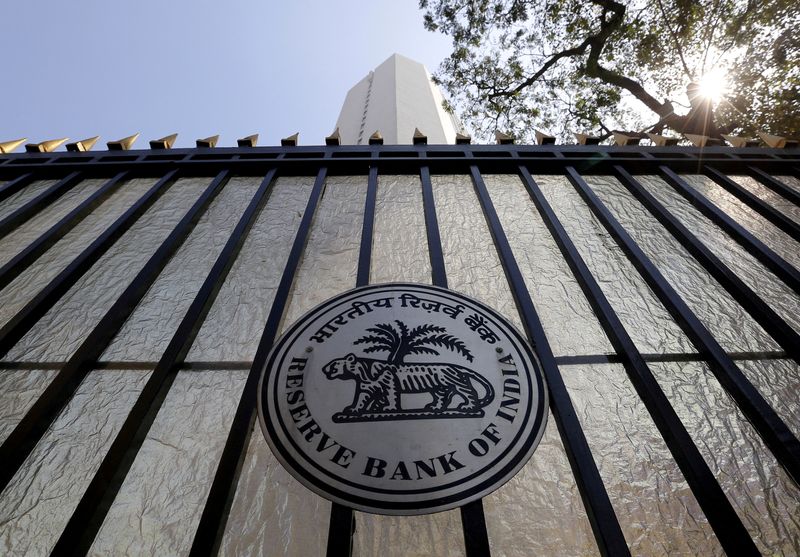By Swati Bhat
MUMBAI (Reuters) - Reserve Bank of India's monetary policy committee (MPC) will meet on Thursday, outside its scheduled meetings, to discuss its first ever inflation target miss, which will require it to write a letter to the government.
The central bank aims to keep retail inflation within 2 percentage points on either side of its 4% target over the medium-term.
What does the RBI mandate say?
The RBI mandate requires that the central bank set out the following in a report to the government if the inflation target is not met for three consecutive quarters: the reasons for failure to achieve the inflation target; remedial actions proposed; and the estimated timeframe within which they expect the actions to get inflation back to target.
Why is the special MPC meeting being held?
The special MPC meeting is being held for the first time since the MPC was set up in 2016 because the committee failed to keep retail inflation within the 2-6% target band for three consecutive quarters.
Retail inflation has remained above 6% since January and accelerated in September to a five-month high of 7.41% year-on-year as food prices surged.
India retail inflation above 6% since January https://graphics.reuters.com/INDIA-INFLATION/INDIA/akvezbwzqpr/chart.png
What reasons could the RBI give for missing the target?
Radhika Rao, an economist at DBS Bank, said the central bank would likely pin the slip on "exogenous supply-side pressures" such as the Russia-Ukraine war, which triggered a sharp rally in commodity prices, supply chain disruptions, and the fallout of the COVID-19 pandemic.
Components of Indian inflation https://graphics.reuters.com/INDIA-ECONOMY/INFLATION/lgvdwreempo/chart.png
RBI Deputy Governor Michael Debabrata Patra suggested something similar in a speech in June.
"India is being impacted by the global inflation crisis, reflecting the materialising of geopolitical risks," Patra said.
What timeframe will RBI give for bringing inflation to target?
The RBI expects inflation to fall to 4% over a two-year period, Governor Shaktikanta Das told TV channel ET Now in an interview in August.
The letter would likely stick to that timeline, analysts said.
Why does it matter for markets/investors?
Markets would want some clarity on the timeframe the RBI is proposing to bring inflation within the target band.
After 190 basis points worth of rate hikes since May, investors are closely watching to see how much further the RBI could tighten monetary policy.
Will rate hikes also be discussed at the meeting?
Most traders do not expect any rate action at the meeting but there has been some talk the RBI could hike rates on the back of an expected 75-basis-point U.S. rate hike on Nov. 2.
"The unscheduled meeting on 3 November 2022 recently announced is only a part of the regulatory obligation," Soumya Kanti Ghosh, chief economic adviser at the State Bank of India wrote in a note.
"We do not believe any other agenda to be announced at this meeting, against the market expectation of a slim chance of rate hike."
The MPC has previously taken action at two unscheduled meetings, including a rate cut in 2020 during the COVID-19 pandemic and a rate rise earlier this year to tackle persistently high inflation.

What happens to the next regular MPC meeting in December?
Analysts did not expect any change in the meetings schedule for the rest of the year and see at least one or two more rate rises before the end of the current tightening cycle.